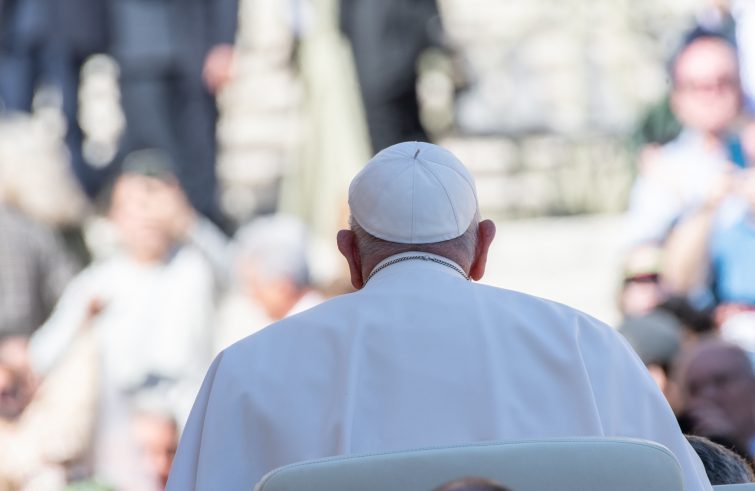
“Let us pray and work tirelessly for weapons to be silenced and for peace to reign once again”, Pope Francis said in his appeal at the end of the Wednesday general audience, before the traditional greetings to the Italian-speaking faithful. “Unfortunately, sad news continues to come from the Middle East”, the Pope said: “I reiterate my firm call for an immediate ceasefire in the Gaza Strip. I express my deep regret for the volunteers killed while engaged in the distribution of humanitarian aid in Gaza. I pray for them and their families. I renew my appeal for the exhausted and suffering civilian population to be given access to humanitarian aid and for the hostages to be released immediately.”
“Let us avoid all irresponsible attempts to broaden the conflict in the region, and let us work so that this and other wars that continue to bring death and suffering to so many parts of the world may end as soon as possible”,
was Francis’ request. The Pope sent out an appeal not to forget the “tormented Ukraine”, remembering “so many dead” on the battlefield. Francis thus showed the faithful a Rosary and a book of the New Testament that had been left by a soldier who died in the war in Avdijevka. Twenty-three-year-old Alexander (Oleksand) – Francis said in unscripted remarks – “read the New Testament and the Psalms, and in the Book of Psalms he had underlined Psalm 130: ‘Out of the depths I cry to thee, O Lord! Lord, hear my voice!”. This 23-year-old boy died in Avdiïvka, in the war. He had his life ahead of him. And this is his rosary and his New Testament, which he read and prayed. I would like us to take a moment of silence, all of us, thinking about this boy and many others like him who died in this folly of war. War always destroys! Let us think of them, and let us pray.”
“Without justice, there is no peace”,
the Pope told the faithful in the catechesis of the general audience in St. Peter’s Square, dedicated to this theme. “If justice is not respected, conflicts arise. Without justice, the law of the prevalence of the strong over the weak is entrenched”: “And this is not just”, Francis commented off-text. For Francis, justice “regards not only the courtroom, but also the ethics that characterize our daily lives. It establishes sincere relations with others: it realizes the precept of the Gospel, according to which Christian speech is “simply ‘Yes’ or ‘No’; anything more than this comes from evil.” “Half-truths, double-talk intended to deceive one’s neighbour, the reticence that conceals true intentions, are not attitudes in keeping with justice”, Francis denounced: “The righteous person is upright, simple and straightforward; he does not wear masks, he presents himself for what he is, he speaks the truth. The words “thank you” are often found on his lips: he knows that no matter how generous we strive to be, we always remain indebted to our neighbour. If we love, it is also because we have been loved first.”
Moreover, the righteous person, “does not think only of his own individual wellbeing, but desires the good of society as a whole. Therefore, he does not give in to the temptation to think only of himself and of taking care of his own affairs, however legitimate they may be, as if they were the only thing that exists in the world.”
“The virtue of justice makes it clear – and places this need in the heart – that there can be no true good for oneself if there is not also the good of all”, the Pope remarked: “Therefore, the righteous person keeps watch over his own behaviour, so that it is not harmful to others: if he makes a mistake, he apologizes. In some situations, he goes so far as to sacrifice a personal good to make it available to the community. He desires an orderly society, where people give lustre to the office they hold, and not the office that gives lustre to people. He abhors recommendations and does not trade favours. He loves responsibility and is exemplary in promoting legality.”
“a man who does not pay fare wages to workers is not just, he is unjust”,
the Pope’s recommendation: “the righteous person shuns harmful behaviour such as slander, perjury, fraud, usury, mockery, and dishonesty. The righteous person keeps his word, returns what he has borrowed, pays fair wages to all labourers.” Finally, the righteous persons “are not moralists who don the robe of the censor, but upright people who hunger and thirst for righteousness, dreamers who yearn in their hearts for universal brotherhood.” “And, today especially, we are all in great need of this dream. We need righteous men and women, and this will make us happy.”










